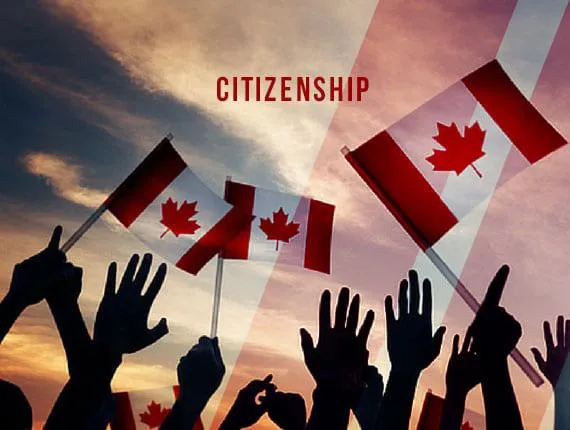SERVICES
Book your Consultation NOW!

Temporary Resident Visa
Visitor Visa
Canada welcomes millions of people from across the globe every year. Getting a Tourist or Visit Visa is a great way to tour Canada and meet family and friends. So, whether you’re looking to visit your family in Canada for leisure purposes or you’re a tourist planning to explore the country. Redhawk Immigration Services Inc can always help you obtain the required documentation for obtaining Visitor Visa.
Main documents required:
1. Letter of sponsorship from the inviter (if any).
2. Identification documents such as Passport.
3. Proof that you will come back after your visit is over.
4. Proof of funds.
Super Visa
Canadian government has issued a special Visa to Parents and Grandparents of Canadian citizens or Permanent Residents which allows them to stay in Canada for extended period of time. Super visa allows the applicants to stay in Canada for up to 2 years at a time and is a multiple entry visa.
Currently, most visitors to Canada may visit for up to six months when they first enter Canada. Visitors who wish to stay longer must apply for an extension, and pay a new fee.
With the parent and grandparent super visa, eligible parents and grandparents can visit family in Canada for longer periods of time than with a visitor visa.
The super visa is a multi-entry visa that provides multiple entries for a period up to 10 years. The key difference is that the super visa allows an individual to stay for up to 5 years at a time in Canada, while a 10-year multiple entry visa would only have a status period for each entry of six months only.
Eligibility requirements:
1. Host has to meet Low income cut off.
2. Medical admissibility.
3. Medical Insurance.
Study Visa
With an exceptional world-class education system, Canada ranks second among the G-8 countries for education. Studying in Canada is the best pathway to gain valuable experience, credentials, and immigration status. All you need is a study permit in Canada from IRCC (Immigration, Refugees, and Citizenship Canada), a letter of acceptance from a designated Canadian institution, and some valid documents.
We at Redhawk Immigration Services Inc. can help you obtain a study permit. We have access to several colleges, universities, and study programs throughout Canada. So, once you’ve decided what to study, we can help you gain acceptance from Canadian Academic Institutions designated by CIC. As the Canadian government has always seen students as desirable potential permanent residents, we can also help you secure a work permit in the postgraduate stage and help you qualify for work in Canada once you graduate.
Eligibility requirements:
1. Be able to convince the visa officer that you will honor the terms of temporary resident permit (study permit) and will leave the country once the study is complete
2. You are required to have a letter of acceptance from a Designated learning institution in order to submit an application for a study permit;
3. Proof of financial resources to pay for tuition fees and living expenses for yourself and accompanying family members.
4. Police clearance
5. Not be a risk to the security of Canada
6. Be in good health (complete a medical examination, if required)
Students are allowed to work 20 hours a week off campus during college semester and full time in holidays if you:
1. Have a valid study permit.
2. Are a full-time student at a designated learning institution
3. Have started studying.
4. Are in a program that leads to a degree, diploma or certificate and is at least six months long.
5. Have a Social Insurance Number (SIN).
Work Visa
There are many options for foreign nationals to work in Canada temporarily. You need to understand how your goals align with the programs offered and to match accordingly. These programs are quite intricate and have varying timeframes. If you wish to work in Canada, you need a valid work permit. But foremost, you must have a job offer from a Canadian employer to obtain it.
There are different types of work permit applications such as:
Open Work Permit
Spousal Open Work Permit
LMIA Based Work Permit
Employer-specific work permits
Post Graduate Work permit… and many more.
And though it might seem that there are challenges in obtaining a work permit in a competitive global market, we can assist you in taking the proper steps in the process to ensure you meet your objectives. At Redhawk Immigration Services Inc, we determine your eligibility and the type of work permit that suits your skills. Our legal representatives are experienced, knowledgeable, and have access to important resources to get your temporary work permit.
Work Permit & LMIA
Open Work Permit
An open work permit is a work permit that is not job-specific. Because it is not job-specific, you will not need the following when you apply for your work permit:
1. A Labour Market Impact Assessment (LMIA) from Employment and Social Development Canada, or
2. Proof that an employer has submitted an offer of employment through the Employer Portal and paid the employer compliance fee
In most cases, you will have to pay the open work permit holder fee at the same time that you pay the work permit fee.
You may be eligible for an open work permit if you
are an international student who graduated from a designated learning institution and are eligible for the Post-Graduation Work Permit Program
are a student who’s no longer able to meet the costs of your studies (destitute student)
have an employer-specific work permit and are being abused or at risk of being abused in relation to your job in Canada
applied for permanent residence in Canada
are a dependent family member of someone who applied for permanent residence
are the spouse or common-law partner of a skilled worker or international student
are the spouse or common-law partner of an applicant of the Atlantic Immigration Pilot Program
are a refugee, refugee claimant, protected person or their family member
are under an unenforceable removal order
are a temporary resident permit holder
are a young worker participating in special programs
LMIA
A Labour Market Impact Assessment (LMIA) is a document that an employer in Canada may need to get before hiring a foreign worker.
A positive LMIA will show that there is a need for a foreign worker to fill the job. It will also show that no Canadian worker or permanent resident is available to do the job. A positive LMIA is sometimes called a confirmation letter.
If the employer needs an LMIA, they must apply for one.
Once an employer gets the LMIA, the worker can apply for a work permit.
To apply for a work permit, a worker needs
a job offer letter
a contract
a copy of the LMIA, and
the LMIA number
Post Graduate Work Permit
International students who complete their post-secondary education in Canada may apply for a Post-Graduation Work Permit, or PGWP, in order to gain Canadian work experience.
The PGWP allows eligible international graduates to work in Canada after their studies for a period of up to three years.
The Government of Canada provides the Post-Graduation Work Permit Program as part of its efforts to attract international students and retain them as skilled workers. The program provides an open work permit, which allows international graduates to work for any Canadian employer in any industry without the requirement of a Canadian job offer at the time of applying.
International students can only receive one Post-Graduation Work Permit from IRCC.
To be eligible for a Post-Graduation Work Permit, international students must have:
Completed studies in Canada in an academic,
vocational or professional training program that is at least eight months long at an eligible Designated Learning Institution
Study program must lead to a degree, diploma or certificate.
Held full-time student status in Canada during every academic session of the program or programs of study completed and included as part of their post-graduation work permit application;
Received a transcript and an official letter from the eligible DLI confirming that the applicant has met the requirements to complete their program of study;
The transcript and official letter must be included in a post-graduation work permit application.
Graduated from a public post-secondary institution, such as;
a college
a trade or technical school
a university
CEGEP (in Quebec)
a private post-secondary school (in Quebec) that operates under the same rules as public schools in Quebec;
a private secondary or post-secondary school (in Quebec) that offers qualifying programs of 900 hours or longer and results in the issuance of a diplôme d’études professionnelles (DEP) or an attestation de spécialisation professionnelle (ASP); or
Canadian private school that can award degrees under provincial law (for example, Associate, Bachelor’s, Master’s or Doctorate degree) but only if the student was enrolled in a study program that leads to a degree as authorized by the province.
Note: Graduates of vocational and professional training programs in Quebec must meet additional PGWP criteria outlined by IRCC depending on the type of diploma issued.


Permanent Residency
Permanent Resident Cards
Upon obtaining permanent residence in Canada, new immigrants are issued a Permanent Resident Card (PR Card) valid for five years.
The PR Card acts as a travel document, allowing permanent residents to easily board planes to travel to Canada, or cross the U.S. border into Canada, without the need for a visa. An expiring PR Card can be renewed for a further five years provided that the
permanent resident has complied with the residency requirement of being physically in Canada for at least 730 days (2 years) in the past 1825 days (5 years).
Express Entry
While Canada offers a great choice of Federal and Provincial immigration programs, immigration to Canada has become increasingly popular due to Express Entry. It is the fastest way of getting permanent residency. The Express Entry Program is a point-based program that awards points on the basis of various factors like age, language, education, work experience, and adaptability. Based on your score in the Comprehensive Ranking System (CRS), within 6 months you can receive an Invitation To Apply (ITA) for applying for a permanent residence visa.
The different immigration programs managed under the Express Entry system are given below:
Federal Skilled Worker
Federal Skilled Trades Program
Canadian Experience Class
Provincial Nominee Program (PNP)
With many programs, streams, and categories to monitor, knowing which Provincial Nominee Program (PNP) options are open for new applications or Expressions of Interest (EOIs) can prove difficult, even for people who follow PNP updates regularly.
Canada’s PNPs allow Canadian provinces to nominate individuals for immigration to their province based on criteria set by the provincial government. Successful applicants obtain a provincial nomination, which may then be used to apply to Immigration, Refugees and Citizenship Canada (IRCC) for permanent residence.
Please note that:
Some PNP Canada streams are aligned with the federal Express Entry (EE) immigration selection system, while some are managed entirely outside Express Entry.
Some PNP Canada streams require applicants to have a job offer, while other streams do not.
Some PNP Canada streams allow individuals to apply directly, without first being invited to apply, while other streams operate on an EOI basis, whereby eligible individuals must first be invited to apply before submitting an application.
At Redhawk Immigration Services Inc., We will not only inform you about the Canadian work scenarios but also guide you throughout the immigration process. With years of experience in the field of visa processes and provincial nominee programs, we can help you gain permanent residency in Canada.
Family Sponsorship
Family/Spousal Sponsorship
Nothing can be more important than family! Canada is committed to the reunification of families and to help bring your whole family here so that they can live, study, work, and enjoy all opportunities that Canada offers. Depending on which family member you want to sponsor, there are 3 types of sponsorship programs.
Spouse or Common-Law Partner sponsorships
Child or Other Dependent Sponsorship
Parent or Grandparent Sponsorship
We will ensure that you have all the necessary information you need to decide how you want to go about the sponsorship program. We not only assess your personal situation and develop a unique plan tailored to your needs but also complete all the paperwork from
beginning to end so that you can be reunited with your family sooner.


Investors Program
Permanent Residency by Investor
Investing in Canada is an ideal way to secure permanent residency. And at Redhawk Immigration Services Inc, we offer comprehensive, bespoke immigration, investment, and relocation solutions that can help you attain permanent residency for your entire family.
In fact, our services are tailored to meet your needs throughout the process of emigrating as an Investor. The Immigrant Investor Program (IIP) is the most popular immigration program that attracts experienced business people to make a significant investment in Canada and secure Canadian permanent residency.
Citizenship
Citizenship through Permanent Residency
For most immigrants, citizenship of Canada is a coveted one. The country welcomes more than 200,000 permanent residents every year. And while you dream of the day when you receive your citizenship status, we make sure you secure it through a legally recognized permanent residence or specific family ties.
Canadian citizenship can be obtained by five easy steps:
First, apply for Canada PR visa through federal or provincial programs, then fulfill the criteria for citizenship for naturalization,
pass the Canadian citizenship test, and lastly attend a citizenship ceremony. However, you must be prepared to pledge of citizenship, before receiving the certificate of Canadian Citizenship.
Citizenship through Adoption
You can apply for Citizenship through the adoption category if you are an adopted child of Canadian parents and have been adopted outside Canada on or after January 1st, 1947. At least one parent should hold Canadian citizenship.


Extension & Restoration
Extension & Restoration
There is a difference between a restoration of status and an extension of status. A restoration of status essentially means that you are restoring your status that you had. For instance, if you had a work permit and it expired, you will apply to restore your status. An example of this is an individual who received a study permit and the study permit will expire on November 15, 2022, but you realize that it has expired already. In this case, you have the ability to restore your status as a student in Canada as long as you apply within 90 days of the expiry of your study permit. In this case, the restoration period will allow you to stay within the country; however, you may not continue studying until you receive a decision on your application
On the other hand, an extension means you are applying to extend your authorized status in Canada. For instance, if your work permit will expire shortly, you can apply to extend your status.
In this case, an extension will allow the individual to remain in the country and continue their activities in Canada, whether that is studying, working or just visiting. This all depends on when you file your application.
If you would like to either restore your status or extend your status in Canada but are unsure what documents to include with your application or how to get started then please don’t hesitate to contact us.
Atlantic Immigration Program (AIP)
Citizenship through Permanent Residency
The Atlantic Immigration Program is a federal immigration program that helps employers recruit skilled foreign workers and international graduates to meet labor needs.
This new employer-driven program builds on the success of the Atlantic Immigration Pilot Program, which closed in 2021. Participants in the pilot program must reapply to use the permanent program.
Eligibility:
To participate in the Atlantic Immigration Program, employers must first be approved by being designated and then have their positions endorsed by the Province. Once the employer’s positions are endorsed, foreign worker(s) identified by the employer can apply directly to Immigration, Refugees and Citizenship Canada for permanent residency. The foreign worker can also get a temporary work permit while waiting for permanent residency.
Process:
1. Employer Designation
To become designated, an employer must:
a. Have a business operating in good standing
b. Provide information on labor needs
c. Commit to working with a service provider organization on settlement and retention
2. Employer Position Endorsement
To have a position endorsed, an employer must:
a. Demonstrate that efforts to hire locally have been unsuccessful
b. Recruit a foreign worker
c. Provide a valid, full-time, non-seasonal job offer co-signed by the foreign worker
d. Provide an individualized settlement plan co-signed by the foreign worker
e. Complete mandatory onboarding training and, if required, intercultural competency training
3. Foreign Worker Immigration Application
To apply for permanent residency foreign workers must:
a. Have a valid endorsement certificate issued by the province
b. Foreign workers who require a work permit must have a work permit referral letter issued by the Province
c. Employers supporting work permit applications must register in the federal employer portal, submit the job offer and pay a compliance fee.

START YOUR IMMIGRATION JOURNEY



The information on this site is of a general nature and is not intended as legal advice. © 2022 Canada Immigration Consultant. All Rights Reserved
Designed by EliteOX
